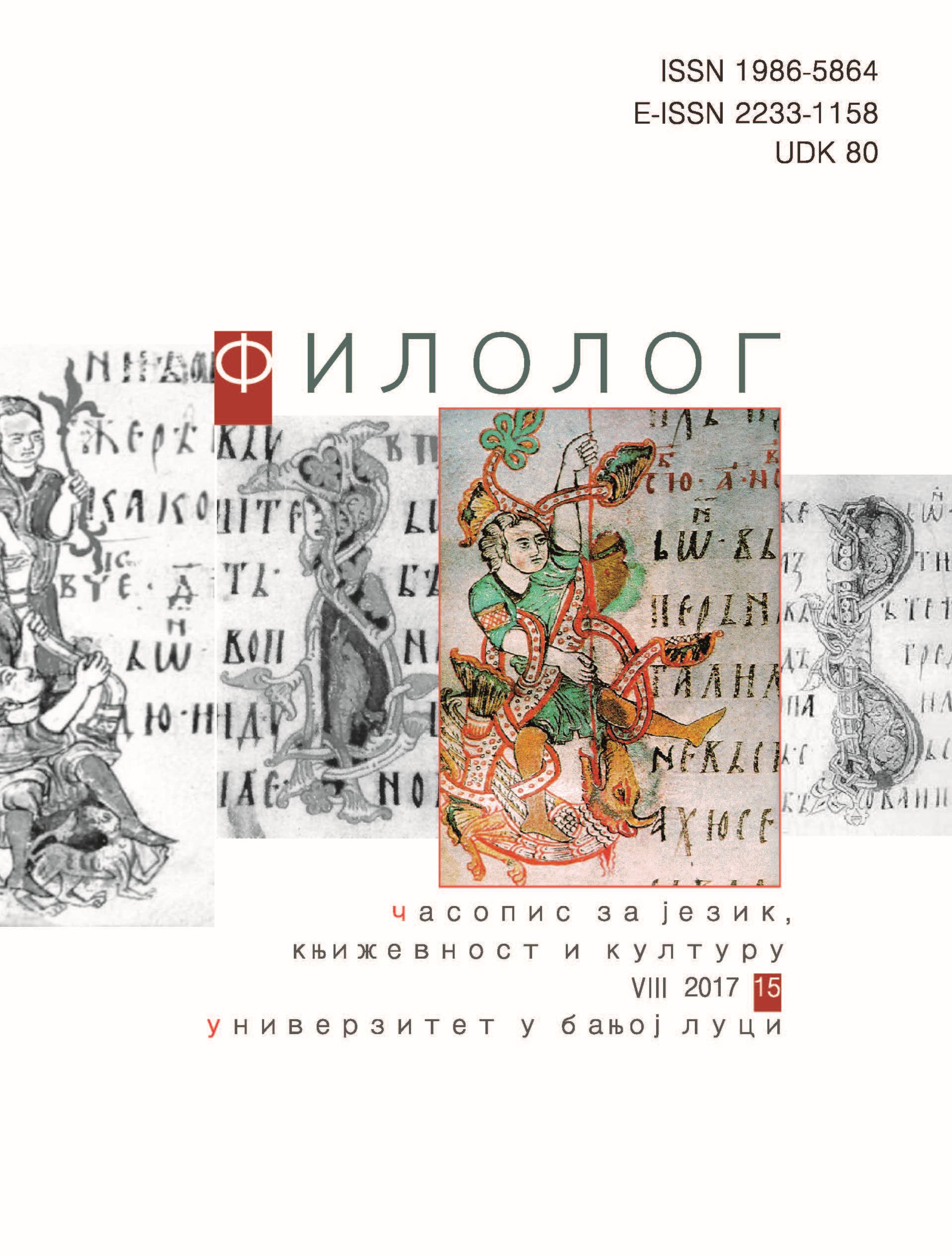Negation of Survival in the Post-war Urban Revival: Septimus in “Mrs Dalloway” and Édouard in “The Great Swindle”
Negation of Survival in the Post-war Urban Revival: Septimus in “Mrs Dalloway” and Édouard in “The Great Swindle”
Author(s): Jelena Lj. PršićSubject(s): Language and Literature Studies, Studies of Literature, Novel, Comparative Study of Literature, Philology, Theory of Literature
Published by: Филолошки факултет Универзитета у Бањој Луци
Keywords: “Mrs Dalloway”; “The Great Swindle”; Septimus Warren Smith; Édouard Péricourt; the First World War; revival; survival; negation; life; death;
Summary/Abstract: This paper focuses on Virginia Woolf ’s Mrs Dalloway (1925) and Pierre Lemaitre’s The Great Swindle (2013), with the aim of pointing out that these two novels share strikingly similar presentations of post-First World War urban social conditions. We first emphasise that in both novels there is visible post-war progress (in London and Paris, respectively), marked by obvious enthusiasm, which is, however, weakened by war consequences. In addition, we detect the presence of the sandwich board job in each novel as indicative of post-war emotional ambiguity. We then claim that the post-war social revival, as the characters of Septimus in Mrs Dalloway and Édouard in The Great Swindle suggest, is constantly being slowed down by some war survivors who, due to harsh war experiences, cannot reintegrate into society, but instead negate their own lives. Thus, as we further stress, they seem to embrace death much before they actually die. Assisted by Elizabeth Grosz’s theory of interface, we derive conclusions about the characters’ communication with the city. Lastly, we offer examples of Septimus’s and Édouard’s obsession with and anticipation of personal deaths, and of a hidden interpretation of their post-war deaths as war dying. Our final goal is to answer whether the two representatives of war survival renunciation, despite living through the war, can be said to die metaphorically in it. In addition, we recognise and (re)define a collective understanding of the war in relation to post-war novels.
Journal: Филолог – часопис за језик, књижевност и културу
- Issue Year: 2017
- Issue No: 15
- Page Range: 347-367
- Page Count: 21
- Language: English

